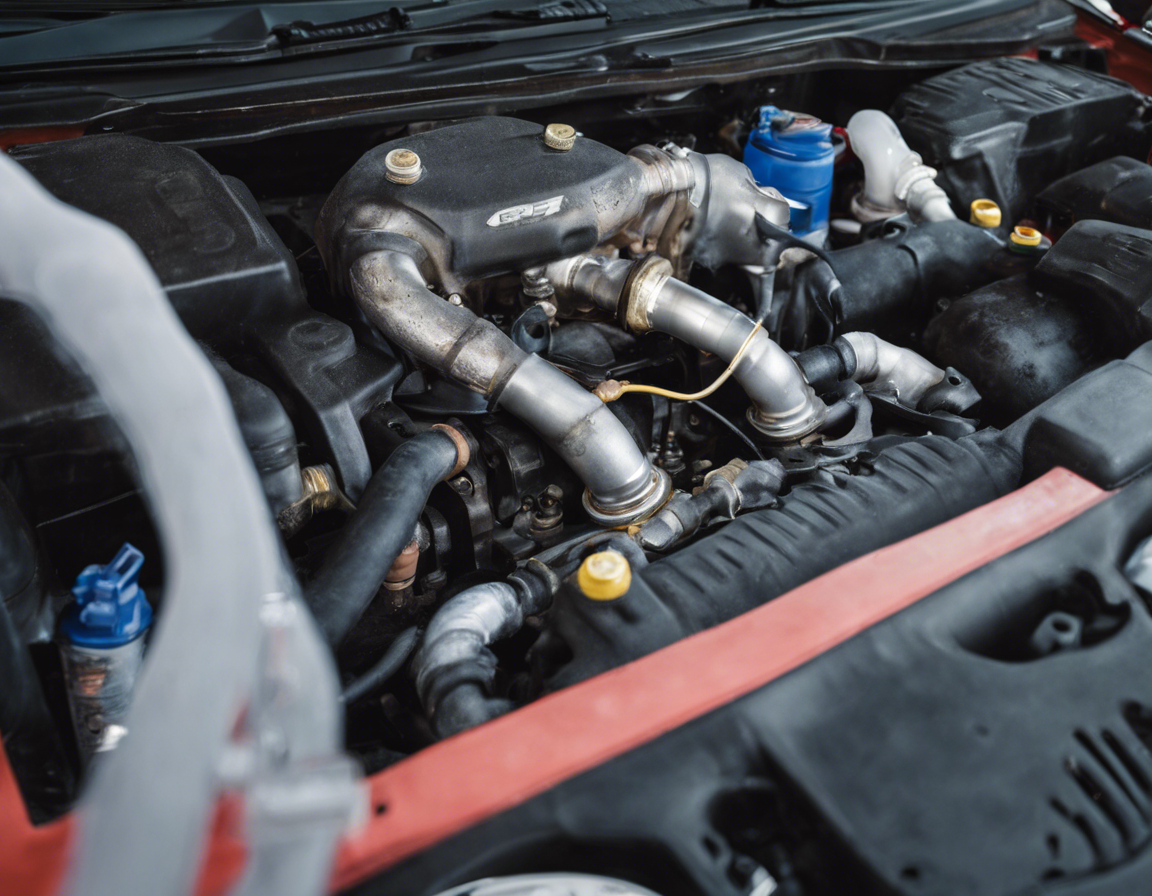Quick Fix: Repairing a Coolant Leak

Introduction
Coolant leaks in a vehicle can be a common occurrence and often indicate underlying issues that need to be addressed promptly. Coolant, also known as antifreeze, is a crucial component for regulating the temperature of the engine and preventing it from overheating. A leak in the coolant system can lead to engine damage and reduced performance if left unattended. In this comprehensive guide, we will discuss the common causes of coolant leaks, how to diagnose them, and different ways to repair them effectively.
Diagnosing Coolant Leaks
Detecting a coolant leak early is essential to prevent serious damage to the engine. Here are some signs that indicate a potential coolant leak:
- Visible coolant puddles under the vehicle when parked
- Sweet smell coming from the engine
- Engine overheating
- Low coolant levels in the reservoir
Common Causes of Coolant Leaks
Several factors can contribute to coolant leaks in a vehicle. Some of the most common causes include:
- Damaged Hoses: Over time, coolant hoses can wear out, become brittle, or develop cracks, leading to leaks.
- Corroded Radiator: A corroded or damaged radiator can also result in coolant leaks.
- Faulty Radiator Cap: A loose or damaged radiator cap can cause the coolant to overflow and leak.
- Cracked Engine Block: In severe cases, a cracked engine block can allow coolant to seep out.
- Leaking Water Pump: A leaking water pump can cause coolant to leak from the front of the engine.
Repairing Coolant Leaks
Once you have identified the source of the coolant leak, there are several methods to repair it, depending on the severity and location of the leak.
- Tightening or Replacing Hoses: If the leak is coming from a damaged hose, you can try tightening the connections or replacing the hose altogether.
- Sealing Products: There are various coolant leak sealants available in the market that can help seal minor leaks.
- Radiator Repair: For radiator leaks, you may need to repair or replace the radiator depending on the extent of the damage.
- Replacing Gaskets: In cases where gaskets are causing the leak, replacing them is often necessary.
- Professional Repairs: For more severe leaks, it is recommended to seek professional help from a mechanic to assess and fix the issue.
Preventing Coolant Leaks
Regular maintenance and inspection of the coolant system can help prevent leaks. Here are some tips to avoid coolant leaks in the future:
- Check coolant levels regularly and top up as needed.
- Inspect hoses for wear and tear and replace them if necessary.
- Flush the coolant system periodically to remove debris and prevent corrosion.
- Keep an eye on the temperature gauge to detect any overheating issues early on.
FAQs:
-
How do I check for a coolant leak?
You can check for a coolant leak by inspecting for visible puddles under the vehicle, monitoring coolant levels, smelling for a sweet odor, and checking for signs of overheating. -
Can I drive with a coolant leak?
It is not recommended to drive with a coolant leak as it can lead to engine damage and overheating. It’s best to address the issue promptly. -
Are coolant leak sealants effective?
Coolant leak sealants can be effective for minor leaks, but they may not provide a permanent solution. It’s essential to address the root cause of the leak for a long-term fix. -
How much does it cost to repair a coolant leak?
The cost of repairing a coolant leak can vary depending on the extent of the damage and the parts that need to be replaced. It is recommended to get a quote from a mechanic. -
Can I use water instead of coolant in an emergency?
While water can be used temporarily in an emergency, coolant is essential for regulating the temperature of the engine and preventing corrosion. It’s best to use a coolant mix as soon as possible.
Conclusion
Coolant leaks can be a frustrating issue for vehicle owners, but with prompt diagnosis and timely repairs, you can prevent significant damage to your engine. Regular maintenance and inspection of the coolant system are key to avoiding leaks and ensuring your vehicle’s optimal performance. Remember to address coolant leaks promptly and seek professional help if needed to keep your vehicle running smoothly.
